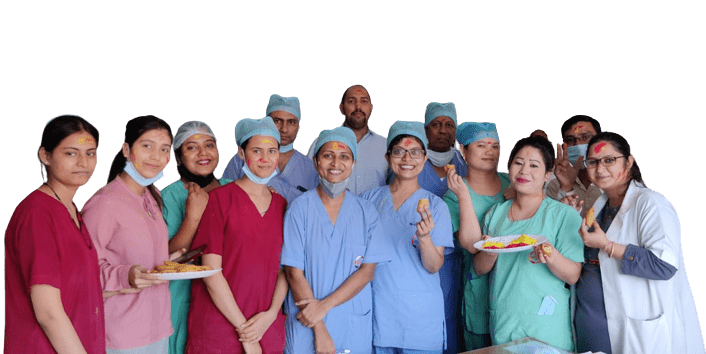Need Help?
We are here to help.
We care for each one who come to us with hope in their hearts.

Home » A tête-à-tête with Dr. Kaberi Banerjee an IVF Specialist on rising pregnancy concern’s during the sweeping Covid-19 wave
As the second big wave of Covid-19 continues in India, women across the country have growing concerns and questions regarding various aspects of pregnancy. Dr. Kaberi Banerjee, Director of Advance Fertility and Gynaecology Centre sheds light on some of the most common worries that expecting mothers have.
Excerpts from the interview below.
I would like to congratulate all mother’s, would be mothers, planning to be mothers on Mother’s Day. Being a mother is one of the most divine gifts from nature and is to be cherished. For me every day is mother’s day.
As you know the COVID-19 infection has a mild, moderate and severe spectrum. The majority of the pregnant ladies fall into the mild to moderate category and are managed conservatively at home. Roughly from those who are symptomatic 5-10 % need some form of critical care and more than 90% recovers. However with the new strains it has been seen that the respiratory distress is high in pregnant women and some need much more intensive support and time to recover. The incidence of preterm delivery is also slightly high in covid pregnancy. There is no risk of increased miscarriage rate or congenital malformations due to covid.
All pregnant women should maintain social distancing, hand hygiene and double masking. They should eat nutritious diet especially does high in various vitamins, get adequate rest and be stress free. Deep breathing exercises must be practiced. Once symptoms occur they must isolate themselves and consult their obstetrician. If at any time the symptoms worsen then they should be immediately hospitalized.
None of these viruses are live viruses so ideally there should not be any risk, however not many pregnant women have been studied regarding risk and side effects when vaccination is given. The international guidelines should strongly consider vaccination in pregnancy women especially when viral infection rate, advanced maternal age, is high and there are associated co-morbidities. The National Federation of Obstetrician (FOGSI) has urged the government to allow vaccination in pregnancy especially in high risk groups. A study conducted regarding acceptance of vaccination in pregnant women has indicated that Indian pregnant women have a high acceptance of the vaccine.
Till recently there has been no suggestion that the virus causes any malformation or any other increases problem to the new born except a slight higher incidence of preterm delivery. Mother to child transmission is also very low. However, latest study on the new virulent strain has indicated, especially in those women who are unable to attain healthcare in time, a slight higher incidence of still birth.
The WHO has indicated that the benefits of breast feeding out way the risk of transmission of covid to the baby. There is recommendation that by following strict hand washing, double masking and maintain distance when not breast feeding should be followed during this period. The virus is not transmitted through breast milk.
Though safety and efficacy studies of this vaccine on lactating women have not been carried out extensively, the vaccine is not a live vaccine. On the other hand the benefits of transmission of antibody through the breast milk to the baby have been demonstrated. Therefore vaccination in breast feeding women in high infected area and those with associated co-morbidities is being strongly recommended.
There are few approved vaccine like Covishield (Oxford- Astrazeneca), Covaxin, Pfizer, Moderna and Johnson & Johnson, none of these vaccines are live vaccines, most are safe and efficacious. However a very rare side effect especially in younger population has been noticed by the Astra-zenica vaccine, the incidence reported in less than 10 per million users. It is a rare immune induced vaccine disorder called VITT ( Vaccine Induced Idiopathic Thrombotic Thrombosycopenia).
The course of the pandemic has been highly unpredictable. In my opinion those wishing to start their family cannot delay the process indefinitely, especially those with advanced age and with previous history of infertility. The guidelines of social distancing, hand hygiene and masking must be strictly followed, vaccination must be taken. Studies have indicated that the virus or the vaccine does not have any effect on fertility so far.
Yes, it may be sensible to separate the date of vaccination by a few days from treatment procedure like egg collection so that any symptoms such as fever may be correctly attributed to the vaccine and not the treatment procedure. Unnecessary delay of treatment is especially not advised to women more than 35 years of age.
We care for each one who come to us with hope in their hearts.

Disclaimer – Dr Kaberi is not associated with any Hosptial/Clinic other than “Advanced Fertility and Gyne Center (AFGC)”. AFGC has only four centers at present 1. “Lajpat Nagar” 2. “CR Park Delhi” 3. “Noida” 4. “Gurgaon“.